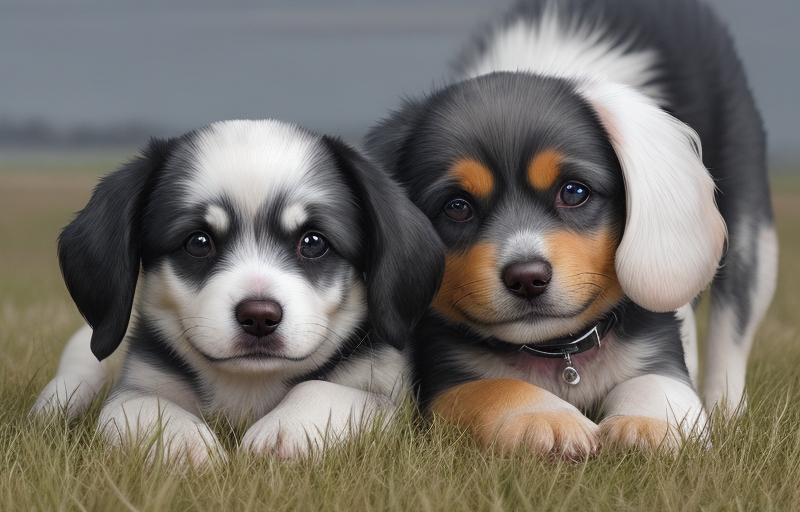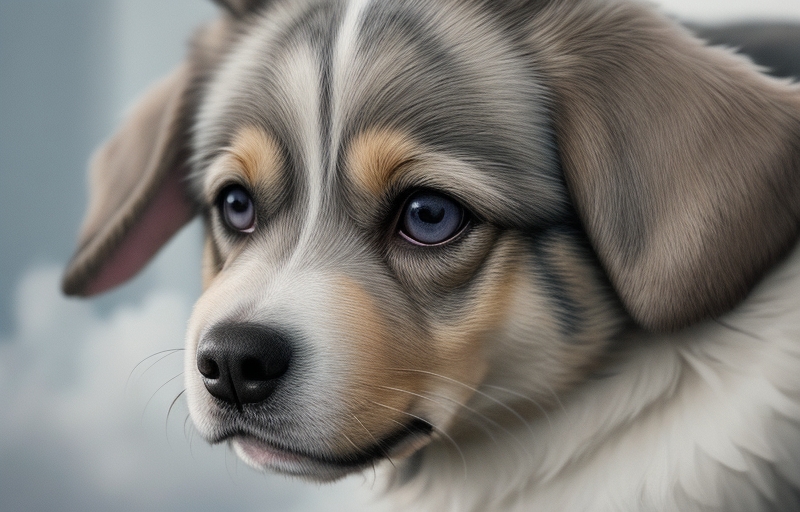Explore the Reasons for Cloudy Eyes in Dogs, ranging from common conditions to serious health issues. Learn about the symptoms, prevention methods, and frequently asked questions to ensure your canine companion’s ocular health.
Introduction:
Cloudy eyes in dogs can be a concerning sign for pet owners, indicating underlying health issues that require attention. While some causes may be relatively benign, others can be more serious, affecting your dog’s vision and overall well-being. In this comprehensive guide, we’ll delve into the reasons behind cloudy eyes in dogs, explore symptoms, discuss prevention methods, and address frequently asked questions.
Reasons for Cloudy Eyes in Dogs:

1. Cataracts:
One of the most common causes of cloudy eyes in dogs is cataracts. These occur when the eye’s lens becomes cloudy, leading to impaired vision. Aging, genetic predisposition, and certain medical conditions can contribute to cataract formation in dogs.
2. Corneal Ulcers:
Corneal ulcers, or scratches on the cornea, can result in cloudy eyes. These injuries may be caused by trauma, foreign objects, or underlying conditions like dry eye (keratoconjunctivitis sicca).
3. Glaucoma:
Glaucoma is a condition characterized by increased pressure within the eye. This heightened pressure can lead to cloudiness, redness, and discomfort. Glaucoma can be a medical emergency requiring prompt attention.
4. Conjunctivitis:
Inflammation of the conjunctiva, the thin membrane covering the eye, can cause cloudy eyes. Conjunctivitis may result from allergies, infections, or irritants.
5. Nuclear Sclerosis:
Often mistaken for cataracts, nuclear sclerosis is a normal age-related change in the eyes. It causes a bluish haze and does not usually affect vision. However, a veterinary examination is necessary to differentiate between nuclear sclerosis and more serious conditions.
6. Genetic Predispositions:

Certain breeds are genetically predisposed to eye issues, including cloudiness. Breeds like Siberian Huskies, Poodles, and Boston Terriers may be more susceptible.
7. Age-Related Changes:
Aging can contribute to cloudiness as the lens and other eye structures may degenerate over time. Puppies, on the other hand, might experience cloudiness during development.
8. Infections:
Bacterial or viral infections affecting the eyes can result in cloudiness. Proper hygiene and prompt treatment are essential to prevent infection-related issues.
9. Nutritional Deficiencies:
Inadequate nutrition can impact eye health, leading to cloudiness. Ensure a balanced diet with essential nutrients like vitamins A and C to support eye function.
10. Inflammation:
Inflammatory conditions such as uveitis can cause cloudiness. Identifying and addressing the underlying cause of inflammation is crucial for resolution.
11. Allergies:
Dogs, like humans, can suffer from allergies that affect their eyes. Allergens in the environment can lead to irritation, redness, and ultimately cloudiness.
12. Trauma:
Physical injuries to the eye can result in cloudiness. Trauma from accidents, fights, or foreign objects can compromise eye health.
13. Exposure to UV Radiation:
Prolonged exposure to sunlight, especially in breeds with lighter-colored eyes, can contribute to cloudiness. Protecting your dog’s eyes from excessive UV radiation is crucial.
Symptoms of Cloudy Eyes in Dogs:

- Cloudiness: The most apparent symptom is a visible cloudiness or haziness in one or both eyes.
- Watery Eyes: Excessive tearing or discharge may accompany cloudy eyes, indicating an underlying issue.
- Squinting or Blinking: Dogs may squint or blink more frequently when experiencing discomfort or pain in their eyes.
- Redness: Inflamed eyes can appear red or bloodshot, signaling inflammation or infection.
- Changes in Behavior: Dogs with cloudy eyes may exhibit changes in behavior, such as avoiding light or rubbing their eyes.
Prevention Methods:
Regular Veterinary Check-ups:

Schedule regular check-ups with your veterinarian to monitor your dog’s overall health, including their eyes.
Maintain a Healthy Diet:
Proper nutrition contributes to overall eye health. Include foods rich in antioxidants, such as carrots and blueberries, in your dog’s diet.
Eye Protection:
Protect your dog’s eyes from trauma by avoiding situations where injuries can occur. This is particularly important for dogs engaged in activities that may expose their eyes to foreign objects.
Proper Hygiene:
Keep your dog’s eyes clean by gently wiping away discharge with a damp cloth. Be cautious not to introduce irritants into the eyes.
Monitor for Changes:
Stay vigilant for any changes in your dog’s eyes, such as cloudiness, redness, or unusual behavior. Early detection can lead to timely intervention and better outcomes.
Conclusion:
Cloudy eyes in dogs can be indicative of various underlying issues, ranging from minor irritations to serious conditions affecting their vision. Regular veterinary check-ups, attentive care, and prompt attention to any changes in your dog’s eyes are crucial for maintaining their ocular health. By understanding the causes, recognizing symptoms, and implementing preventive measures, you can help ensure a happy and healthy life for your canine companion.
Read Also: Cloudy Eyes in Dogs
Frequently Asked Questions (FAQs):
Can cloudy eyes in dogs be a sign of a serious condition?
Yes, cloudy eyes can indicate serious conditions such as cataracts, glaucoma, or corneal ulcers. Prompt veterinary attention is crucial for an accurate diagnosis.
Can I treat cloudy eyes in my dog at home?
While mild cases of eye irritation may be alleviated with proper hygiene, it’s essential to consult with a veterinarian for persistent or worsening symptoms.
Are cloudy eyes in older dogs normal?
Nuclear sclerosis, a common age-related change, can cause a bluish haze in older dogs’ eyes. However, any noticeable changes should be evaluated by a veterinarian to rule out more serious conditions.
Can I prevent cataracts in my dog?
While genetic factors may contribute to cataracts, maintaining a healthy lifestyle, providing a balanced diet, and regular veterinary check-ups can help minimize the risk.
Is surgery the only treatment for cataracts in dogs?
Surgery is a common treatment for cataracts, but the necessity depends on the severity and impact on the dog’s quality of life. Your veterinarian will recommend the most suitable course of action based on the specific case.
